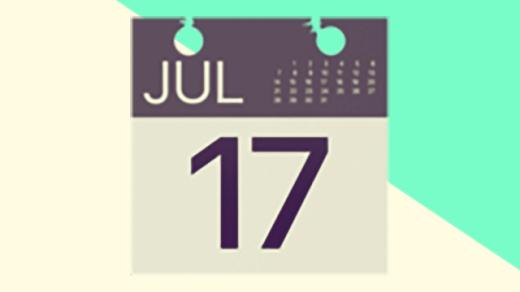If you fail to plan, you plan to fail.

One of my most favourite work tasks – and life admin tasks – is scheduling. Yes, most people find it incredibly boring. Yes, I can see why. No, this does not make any difference to the sheer joy it brings me.
There is such a thing as being too focused on organisation. Getting carried away with planning and scheduling is easy to do – I mean, why not plan out the rest of the month, season, year? It just means you’ll be more organised in the end, right? I have been here and done this, and it does not end well. There are ultimately two types of planning: macro and micro. Having an overarching five or ten year plan is great for keeping you on target, but there’s no point visiting the micro here. Getting bogged down in detail is a recipe for disappointment, because life might just throw you a curveball. In fact, it definitely will. My advice for long term planning is to work out some goals, whack em on a list, and check in with them every few months. The end!
When it comes to your personal life, turning away from the micro can be hard, especially for producers. Having worked in both production and project management, this is what I would single out as the biggest difference between the two. Producers have to be down in the minutiae, the nitty gritty, every single day. Project managers spend time down there too, but they spend more time zoomed out, focusing on the big picture.
Because of this, how I plan for work and home are quite different. I consciously keep myself away from being too detail-oriented in my home life. Work is a little different 😏
Scheduling for work
1. Pay attention to how your colleagues work
Scheduling is an imprecise tool. Sadly. And that’s because we aren’t scheduling robots – they could do it themselves. We are scheduling humans, and humans are individuals (sigh). Everyone works differently, and that’s a good thing – people need different conditions to produce their best work. To schedule your team well, pay attention to the way each team member works, and try to adjust your plan accordingly. Think of it as gathering data and personalising an algorithm 🤖
2. On the tools
There are so many out of the box tools available for work planning now, I can hardly keep up. My workplace has been trimming tools rather than adding new ones – tool fatigue is real – so the only ones I use regularly now are Basecamp3 and Trello. These work for me, but everyone is different, so try out different combinations until you find a set that really do it for you.
3. Maker vs manager
The idea that there are two types of work has been floating around for quite some time. As a producer, I frequently find myself on the manager schedule. But I am often managing the time of my coworkers, many of whom are makers. Think about this if you are ever responsible for someone else’s time.
4. Schedule your damn self
You know yourself, and your environment, better than anyone. So be honest, and spend a few minutes restructuring your day to get the most out of it. For example, I spent a long time complaining about how I never got undisturbed time at work. Then I realised, yes, I do – I usually have an hour every morning before most of the team arrive. And I waste it responding to emails. Now, if I have anything that requires my undivided attention, I queue it up first thing. Emails can wait.
Scheduling for home
As I mentioned earlier, my work style of planning is just too much for my home life. You don’t need to allocate two hours to your breakfast date, you just need to go eat breakfast and enjoy yourself. So, my tips for scheduling here are a lot simpler.
1. Write things down
You can’t explain away forgetting something by exclaiming that you’re too busy. Newsflash, we are all busy! Get a notebook or go digital, but either way, jot down those plans. Yay, no more awkward conversations because you double booked yourself 🙄
2. Accept that plans can change
No one likes a flake, but there’s nothing wrong with a time or venue change. Sometimes, you’ll end up somewhere better or discover something new. Just roll with it.
3. Show up
Be there. Really there. Don’t sit on your phone. Engage with your friends and family. They’ll thank you for it. And you’ll thank me 😉



